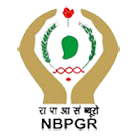India is a signatory to the Cartagena Protocol on Biosafety (CPB) for ensuring the safe handling, handling transport and use of Living Modified Organisms (LMOs)/Genetically Modified Organisms (GMOs). The Ministry of Environment, Forest & Climate Change (MoEF&CC), Government of India is the apex regulatory body for implementation of CPB in the country, which facilitated the Global Environment Facility (GEF)-World Bank funded Capacity Building Project for implementation of from 2004-2007. The “Phase II Capacity Building Project on Biosafety” has been initiated by MoEF&CC in 2012 with the objective to strengthen the biosafety management capacity in the country to ensure adequate protection of human health and biodiversity from potential harm arising from the LMO-related activities in agriculture. The project components included Strengthening Regulatory and Legal Framework, Strengthening Institutional Capacity, Human Resource Development, Information Dissemination for Enhancing Public Awareness, and Regional Networking and Cooperation.
With the increase in approvals for genetically modified (GM) crops globally with diversified traits, testing for unauthorized GM events or LMOs in the country needs to be undertaken in a systematic and harmonized manner. More than two dozen LMO testing laboratories in the country are testing for GM status, with their own GM detection methodologies. In order to harmonize the GM detection activities in the country, this web page on ‘GMO/LMO Testing Laboratories Network of India’ has been developed by the ICAR-NBPGR, New Delhi under the project on Networking of LMO Detection Laboratories of India and Regional Network sponsored by the UNEP-GEF Phase II Capacity Building Project on Biosafety and supported by the MoEF&CC.
Objectives of NGTL:
- To harmonize GM detection activities in the country and to provide dynamic information about GMOs/LMOs testing laboratories including four National Referral Laboratories to the diverse stakeholders;
- To provide information related to the meetings, workshops, other capacity building activities being held in the area of GMO/LMO detection.
Role of GM detection laboratories:
Referral Laboratories: To detect the presence or absence of LMOs/GMOs, as per the Gazette of India: Extraordinary [Part II Sec 3(ii)] by the Ministry of Agriculture and Farmers Welfare (Department of Agriculture, Cooperation and Farmers Welfare) Notification dated 15 November 2017
Other GM detection laboratories: GM testing for export permits to issue certificate of GM-free status of the consignments and to provide services for GMO testing as per their defined scope.













